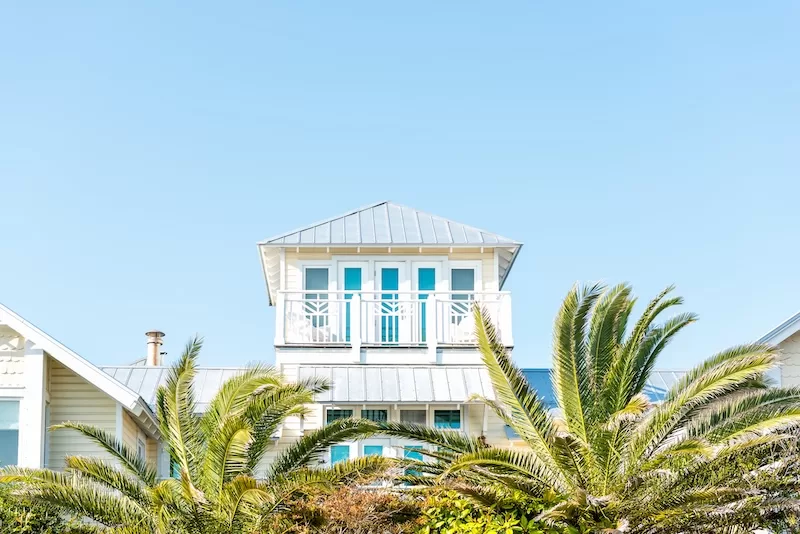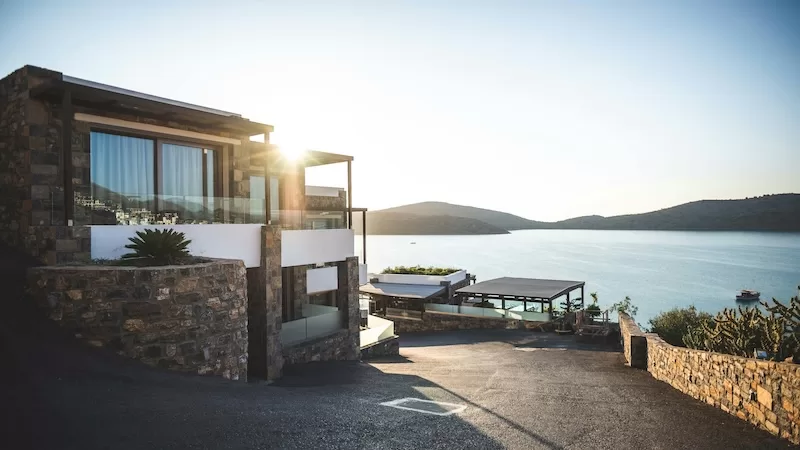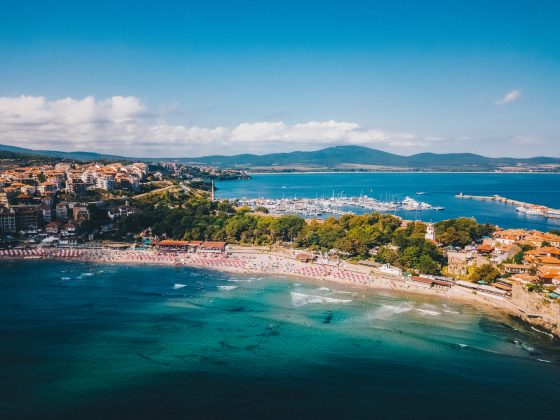For decades, property ownership followed a familiar path: buy a family home, build equity, maybe add a vacation place if fortune allowed. But in a world of inflation, volatile markets, and governments tightening fiscal policies, the rules are changing – and offshore investment is becoming a more appealing alternative.
Today, more investors are looking outward—toward second homes in stable, tax-efficient, or fast-growing countries—as part of their long-term financial plan. They aren’t just seeking lifestyle upgrades or postcard views; they’re seeking resilience.
Owning real estate offshore is no longer about escaping, it’s about hedging against inflation, political uncertainty, and the limitations of one jurisdiction. And it’s becoming one of the most powerful ways to anchor both lifestyle and liquidity in an increasingly unpredictable world.
Here are the reasons why more investors are choosing offshore investment.
The Global Shift in Property Investment
The trend began quietly. Wealth migration picked up after the 2008 financial crisis, when investors started diversifying geographically as a form of risk management through offshore investment. Then the pandemic accelerated it. Lockdowns, remote work, and economic shocks exposed just how vulnerable single-country dependency could be, not only for income but for freedom of movement and financial control.
Suddenly, having a home abroad wasn’t just aspirational; it was practical. A base in another country could mean easier travel, more predictable living costs, and a legal foothold in a jurisdiction less burdened by taxation or political unrest.
The result is a new kind of investor class—globally mobile, financially strategic, and less attached to borders. They see property not simply as shelter or speculation, but as sovereignty.

Real Estate as a Plan B on Offshore Investment
Offshore property investment is often described as a lifestyle choice. But for many, it’s a form of jurisdictional diversification—an anchor in a second (or third) legal and economic system.
Consider what happens when you hold all your assets—bank accounts, property, income streams—within one country. Your financial future is tied to its currency, its politics, and its policies. If that country experiences a downturn, raises taxes, or imposes capital controls, your options shrink overnight.
By contrast, a home in another jurisdiction gives you options. It’s a physical asset that transcends market volatility, one that can be rented, sold, or lived in as needed. For those pursuing second residencies or citizenships, it’s often the first step toward greater freedom of movement and financial security.
The logic is simple: if you can’t control the system, control where you stand within it.
Read more like this: Choosing an Offshore Investment Destination: A Step-by-Step Tutorial
The Appeal of Tangible Assets
In an age dominated by digital wealth, including stocks, crypto, and intangible returns, real estate has regained its appeal as something that can’t vanish with a market swing or server crash.
A property abroad offers:
- Tangible security – A physical, enduring asset in a world of uncertainty.
- Currency diversification – Exposure to markets and currencies beyond your own.
- Passive income – Rental opportunities in tourism or expat-friendly destinations.
- Potential residency benefits – Many countries tie property ownership to long-stay visas or investment programs.
The asset you can touch has regained meaning. And when that asset sits in a jurisdiction with lower taxes, stable governance, and growth potential, and becomes far more than a lifestyle choice, but a cornerstone of global wealth strategy.

Where the Smart Money Is Going
The offshore property map is shifting. Once-dominant luxury enclaves like Monaco and Singapore remain safe havens, but new hotspots are emerging across Europe, Latin America, and Asia—markets that combine affordability with strong investor protections and residency advantages.
- Portugal continues to attract buyers even after Golden Visa reforms, thanks to its high livability, low property taxes, and thriving rental market.
- Panama remains a perennial favorite for its dollarized economy, territorial tax system, and accessible Friendly Nations Visa.
- Mexico, particularly regions like Tulum and San Miguel de Allende, offers cultural depth, investor-friendly regulations, and strong appreciation potential.
- Greece and Spain still draw European and Middle Eastern investors seeking both Mediterranean lifestyle and EU access.
- Thailand is expanding its long-stay visa programs and attracting digital nomads and retirees alike.
These aren’t speculative bubbles—they’re new centers of gravity for global citizens rethinking what wealth should look like in an interconnected world.
The Tax Advantage on Offshore Investment
Real estate abroad also opens doors to smarter tax planning. Countries with territorial tax systems—such as Panama, Costa Rica, and Malaysia—only tax income earned within their borders. Foreign-sourced income remains untouched.
For investors from countries without worldwide taxation (unlike the U.S.), this can mean true zero-tax living on offshore earnings and appreciation. Even for Americans, the benefits can be substantial. Rental income generated and reinvested locally may be eligible for foreign tax credits, while capital gains may be deferred or reduced depending on the structure used. Some use offshore corporations or trusts to manage ownership efficiently, staying compliant while optimizing exposure.
The principle is clear: structure before strategy. With the right planning, offshore real estate can sit at the intersection of lifestyle and tax efficiency—legally, transparently, and sustainably.
Read more like this: Offshore Tax Planning

The Power of Residency-by-Investment
Perhaps the most transformative aspect of buying property abroad is how it intersects with residency and citizenship programs. Dozens of countries now offer residency-by-investment (RBI) options tied directly to real estate purchases. Portugal, Spain, Greece, Malta, Panama, and the UAE all have frameworks that allow investors to qualify for residency in exchange for a qualifying property investment.
The benefits go beyond living in a new country. Residency can mean access to public healthcare, favorable tax treatment, easier banking, and visa-free travel across entire regions. For some investors, a €250,000 apartment in Greece can become a key to Europe.
A second residence can also future-proof your life. It offers an escape route if your home country becomes unstable, a legal base for global business operations, or simply the peace of mind of knowing you have options. And for those who take the next step—pursuing citizenship-by-investment (CBI)—property ownership can lead to a second passport, unlocking even broader financial and travel freedoms.
Building Global Portfolios
The new generation of property investors thinks globally by default. Instead of owning two homes in one country, they own one in Europe, one in Latin America, and one in Asia, balancing currency risk, lifestyle options, and long-term growth.
Some lease out properties year-round, generating passive income in different currencies. Others live seasonally, using their homes strategically to maintain non-residency in high-tax jurisdictions.
Platforms and networks now make managing these portfolios easier than ever. From fractional ownership models to turnkey rental management, global property has become accessible not just to millionaires but to middle-class professionals with vision and a plan. As one investor recently put it: “It’s not about owning more. It’s about owning smart.”

Inflation, Instability, and the Flight to Safety
In 2025, the conversation around offshore property is now about safety. Inflation continues to erode savings, currencies fluctuate, and the line between domestic and global markets grows thinner by the year.
Real estate abroad has proven its ability to preserve wealth across economic cycles. It produces tangible returns through rent and appreciation, while protecting investors from single-country downturns.
For example, during recent currency devaluations in Argentina and Turkey, investors holding hard assets abroad—especially in stable currencies like the euro or dollar—retained purchasing power while local values plummeted. The same holds true for families who bought in Portugal or Mexico a decade ago; their properties have doubled in value while providing both income and lifestyle flexibility.
As capital looks for safer harbors, property remains the oldest and often the most reliable form of protection.
The Emotional Dividend
Financial strategy aside, there’s an intangible benefit to owning a home abroad—the emotional dividend of belonging somewhere else. For many investors, it’s about stepping into a slower rhythm, exploring new cultures, or creating a legacy for their children that transcends geography.
That emotional payoff is difficult to quantify but deeply felt. It’s what turns an offshore investment into a chapter of a personal story.

Pitfalls and Precautions
Of course, opportunity comes with caution. Buying abroad without proper guidance can invite risk—fraud, unclear titles, or misunderstandings about ownership rights.
To avoid costly mistakes:
- Verify legal ownership through independent local counsel, not the seller’s agent.
- Understand taxes in both your home and host countries, including capital gains, inheritance, and property taxes.
- Be realistic about liquidity. Property abroad is less liquid than stocks, so think long-term.
- Consider property management. If you won’t live there full-time, find a trusted local firm to handle maintenance and rentals.
- Plan for succession. Offshore property must be structured to ensure smooth inheritance and tax efficiency.
Above all, do your due diligence. Offshore property can transform your portfolio—but only if it’s managed with the same discipline as any other investment.
The Future of Offshore Ownership
As governments tighten capital controls and redefine taxation, offshore real estate will likely become an even more important pillar of global financial planning.
Technological innovation—blockchain registries, digital nomad visas, and tokenized property shares—is making ownership more transparent and accessible. At the same time, geopolitical uncertainty continues to push capital toward safety and stability.
The next decade will see more investors—not just the ultra-wealthy—acquire homes abroad as part of their diversified “Plan B.” These properties will serve not only as financial assets but as passports to freedom, resilience, and opportunity.
Owning Your Future
Buying a home offshore is a calculated move toward freedom. It broadens your options, protects your assets, and plants a stake in a world that rarely stands still. For some, it begins with a second residence by the coast. For others, it grows into a base for business, family, and long-term security.
Whatever form it takes, the intention is the same—choice. The power to decide where you live, invest, and belong. A second home abroad offers more than lifestyle or status; it offers control. And in a shifting global economy, control is the truest measure of wealth.
Read more like this: How to Secure a Second Home Overseas
If you’re interested in buying a home abroad and want to weigh up your options, visit ECI Developments, who specialize in creating exceptional residence and resort communities across the world.
Contact Author
"*" indicates required fields
Stay Ahead on Every Adventure!
Stay updated with the World News on Escape Artist. Get all the travel news, international destinations, expat living, moving abroad, Lifestyle Tips, and digital nomad opportunities. Your next journey starts here—don’t miss a moment! Subscribe Now!










